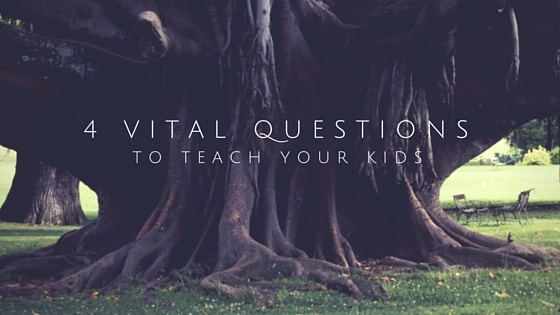4 Vital Questions to Teach Your Kids
1 min read
Date Published: 04/27/2016
Last Updated: 01/09/2018
National Fatherhood Initiative Blog / Latest Articles
1 min read
This post originally appeared on The Huffington Post.
As I reflect on more than two decades of parenting my own children, I continue to believe that the greatest gift any parent can give is to help their child develop self-awareness.

The famous psychiatrist Carl Jung said:
Your visions will become clear only when you can look into your own heart. Who looks outside, dreams; who looks inside, awakes.
One of the best opportunities for clarity about who we are and want to become presents itself when we have conflict with others. Whenever my children have had conflict with their mom, sister, best friend, teacher, teammate, coach, or a stranger, I have done my best to focus them on questions that help them become more self-aware. That’s because humans have a tendency to focus on the actions, attitudes, and beliefs of “the other” in the conflict. We want to avoid asking the tough questions about our own role in bringing about conflict. It’s simply easier and more convenient to blame the other person for creating and sustaining conflict.
I’ve found that teaching my children to ask the following four questions has helped them navigate conflict and come out the other side more self-aware:
It’s amazing how these questions have helped my children gain insight into who they are and want to become. These questions have helped them step back and take an objective view of the situation and realize that, regardless of what the other person says or does, they have the power to end the conflict or walk away from it.
Teach your children to use these questions to help them grow into self-aware youngsters and adults. You’ll be glad you did.
Are you a dad looking for help? Please visit our Fatherhood Program Locator™ and enter your city and state on the map to find programs and resources in your community.
This post originally appeared on The Huffington Post.
Date Published: 04/27/2016
Last Updated: 01/09/2018
Download this free guide for a proven 7-step roadmap—from making the case and securing funding for your program, to launching and measuring real results!


Train Your Staff
Fatherhood Programs
Fatherhood Data
© 2026 National Fatherhood Initiative®. All rights reserved.